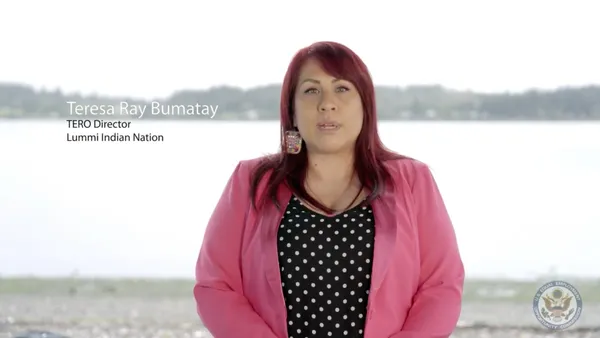Companies including Facebook, Microsoft and Salesforce are providing employees with the option to remain working remotely beyond the coronavirus pandemic. Not only is remote work providing options for employees, but it also may create more opportunities to attract and hire underrepresented talent without location being an obstacle.
It can be challenging for recruiters to attract and source underrepresented candidates when a local talent pool isn't very diverse, according to LinkedIn's Talent Solutions group's February blog post. For example, Black workers largely do not live in the places where job growth will likely rise the quickest through 2030, a Feb. 22 report by McKinsey & Company found. "Roughly one in 10 Black workers live in the counties with the highest projected job growth," James Manyika, chairman and director of McKinsey Global Institute and senior partner at McKinsey & Company, said during a virtual press conference. There is only about 8.8% representation of Black workers in the West and Pacific. However, many cities in this geographical area are experiencing job growth, according to the report.
"With flexible work environments, including a mix of remote, physical and hybrid, becoming a long term strategy, companies have the opportunity to reimagine their sourcing strategies and recruit talent from more diverse talent pools wherever they are in the world — not just based on a single location,” Jennifer Shappley, vice president of talent acquisition, engineering at LinkedIn told HR Dive in an email.
Remote work can create opportunities for many individuals with disabilities, too, according to LinkedIn. In 2020, fewer individuals in the U.S. with a disability were employed than in 2019 — a total employment rate of 17.9%, down from 19.3%, based on data from the U.S. Bureau of Labor Statistics (BLS). Individuals without disabilities experienced an unemployment rate of 7.9% in 2020, up from 3.5% in 2019. Prior to the pandemic, many individuals with disabilities faced difficulties attending interviews, for example, but virtual recruiting practices and flexible workplaces are creating more opportunities, according to experts.
Building a remote workforce is also an opportunity to upskill HR professionals on enhanced recruiting practices to build diverse talent pools. Companies should train people managers on "how to source, hire and grow more diverse teams,” Shappley said. "One way to do this is thinking 'skills first' when it comes to recruiting talent," she said. "This means hiring candidates based on their demonstrated skills, rather than pedigree alone."
Along with rooting out unconscious bias in hiring practices, HR professionals should also be aware of conscious biases such as only sourcing candidates directly from colleges, Gary Davis, diversity, equity and inclusion advisory director at Greenhouse Software, said during a recent webinar. Companies often use such standards to create a profile of a qualified applicant, Davis said. "I think the challenge is that identity or that archetype does not fully represent our workforce today," he said.
Inclusion and belonging in the workplace require an environment for employees to be their authentic selves. However, that's not the experience for many employees when they go into work. A recent report by Fishbowl, a workplace social network, found that the greater majority of Black professionals surveyed who work in industries including accounting, consulting, finance and law, said they felt pressure to change aspects of their behavior and appearance when in the workplace.
A remote environment can actually foster a sense of inclusion and belonging for workers. "Many employees from underrepresented groups are hailing work-from-home as a stepping stone to greater inclusivity, helping them to bring their whole selves to work without facing unnecessary obstacles,” according to LinkedIn.
A remote workforce isn't the complete solution to creating diverse talent pools or ending workplace discrimination; companies are still required to address the underlying causes and "promote inclusivity," LinkedIn advised.
"It's critically important that organizations invest in creating work environments where all employees can grow their careers and thrive," Shappley said.















